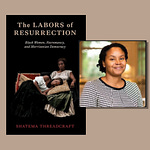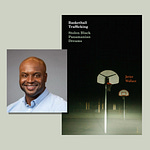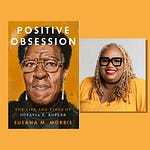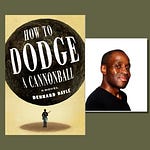Professor Irvin Weathersby’s book, In Open Contempt: Confronting White Supremacy in Art and Public Space (Viking, 2025) is a genre-bending ekphrastic memoir, part US history, part cultural critique, that asks tough questions about how we define our individual and collective past, present, and future. We got deep in a recent podcast episode for the New Books Network, before coming here, where Professor Weathersby shared what didn’t make it into the book, and what he’s working on next.
In this conversation we reference:
The book’s cover art is Jefferson’s “Farm Book,” January 1774 by Titus Kaphar.
Journalist, sociologist, educator, and activist, Ida B. Wells-Barnett
Activist Fannie Lou Hamer
Revolutionary Malcolm X (el-Hajj Malik el-Shabazz)
Abolitionist, author, and orator, Frederick Douglass
Norman C. Francis Parkway, formerly Jeff Davis Parkway. Norman Francis was the first Black and first lay president of Xavier University of Louisiana, and the second African American to serve as president of a Catholic university in the US. Jefferson Davis was the president of the Confederacy (1861-1865).1
Cuban poet and philosopher José Martí . You can read an excerpt from his collection, Simple Verses (de Versos sencillos), in English and Spanish, here.
At the time of this recording, President Donald Trump planned to reinstall the statute of Confederate general Albert Pike in Washington, as reported in the New York Times.
Author Haruki Murakami
I have written elsewhere about my approach to annotating my conversations with various authors. It is a practice I take seriously and, in reflecting on this conversation with Professor Weathersby and his book, I find myself contemplating the decision to make visible Jefferson Davis—a person whose name was consciously removed from a commemorative parkway in New Orleans. That is, am I holding tight to the myths white supremacy created by saying, through my own annotation practices: Reader—this is someone you ought to know? Professor Weathersby and I actually wrestled with the power created by both visibility and invisibility in our podcast conversation. As it relates to this, curated space, I choose to err on the side of visibility. I think it’s hard to appreciate the meaning of change without understanding what or, in this case, who, was there before, and what that “who” represented. This may not be the calculus I use, or the decision I make in every case, but I feel strongly it is the right decision here.









